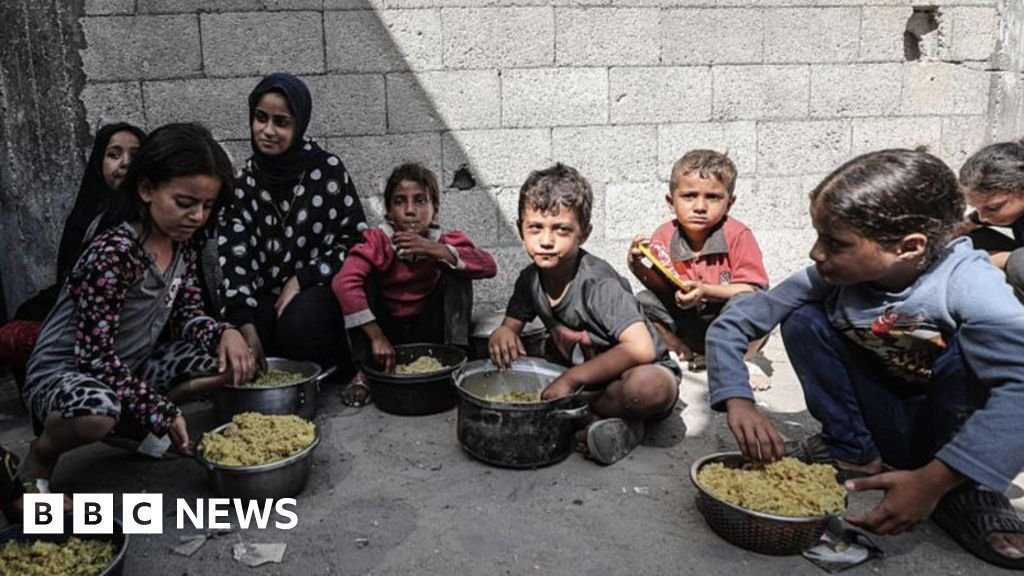
Gaza health crisis to last ‘generations’, WHO chief warns
Sean Seddon,
Wahiba Ahmed And
Anna Foster
The director-general of the World Health Organization (WHO) has warned that Gaza is experiencing a health “catastrophe” that will last “for generations to come”.
Dr Tedros Adhanom Ghebreyesus told BBC Radio 4’s Today program that aid needed to be greatly increased to meet the complex needs of the Strip’s population.
Israel has allowed more medical supplies and other aid to enter Gaza since a ceasefire with Hamas took effect on October 10, but Dr Tedros said that was below the level needed to rebuild the region’s health care system.
As the US tries to intervene, it intervenes Aided in brokering a cease-fire After an outbreak of violence over the weekend.
The deal has been described by the White House as the first phase of a 20-point peace plan that includes an increase in the amount of aid entering Gaza and supplies delivered “without interference” from both sides.
Dr Tedros told the Today program that he welcomed the ceasefire agreement but said the increase in aid that followed was less than expected.
Asked about the situation on the ground, he said Gazans have experienced drought, “tremendous” injuries, collapsed health care and disease outbreaks with destroyed water and sanitation infrastructure.
He added: “On top of that, (there is) restricted access to humanitarian aid. This is a very dangerous combination, which makes (the situation) catastrophic and beyond words.”
Asked about the long-term health prospects in Gaza, he added: “If you take the drought and combine it with the mental health issues that we’re seeing, this situation is a crisis for generations to come.”
Tom Fletcher, head of the United Nations Office for the Coordination of Humanitarian Affairs, said earlier this week that aid groups were “turning the tide on the hunger crisis” but were “still” needed.
On Tuesday, the UN’s World Food Program said more than 6,700 tonnes of food had arrived in lorries since October 10, but that was still far short of the 2,000-tonne-a-day target.
Six hundred aid lorries a day are supposed to arrive in Gaza but the average is between 200 and 300, Dr Tedros said, urging Israeli authorities to “de-link” aid and the wider conflict.

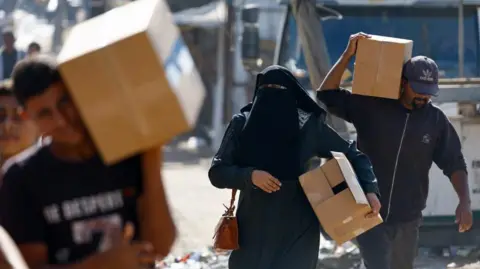 Reuters
ReutersOn Sunday, Israel temporarily halted aid deliveries after it said two Israeli soldiers were killed in an attack by Hamas gunmen in Gaza. Hamas said it was not aware of the clashes at the time.
The Israeli military responded with airstrikes across the region, killing dozens of Palestinians.
Aid distribution resumed the next day after heavy international pressure.
Dr Tedros said the aid should not be “weaponized” and urged Israel not to impose conditions on its delivery, including returning the remains of hostages still dead in Gaza, which has been a key point of contention during the ceasefire.
Hamas has pledged to return the bodies but has so far transferred only 15 of the 28, saying it has been unable to retrieve the rest.
Hamas released twenty live Israeli hostages last week in exchange for nearly 2,000 Palestinian prisoners and detainees in Israeli prisons.
Dr Tedros told TODAY: “There should be full access, no conditions, especially after the release of all the living hostages and the transfer of a good portion of the remains. I didn’t expect there to be additional restrictions.”
Asked what role the US should play, Dr Tedros said that “since the US brokered the peace deal, it has a responsibility to ensure that all sides respect it”.
Israel currently operates two crossings – Kerem Shalom in the south-east and Kisufim in central Gaza – but there are calls from aid groups for all access routes it controls to be restored.
Dr Tedros said “all available crossings” were needed to get enough aid into Gaza and called on Israel to refuse to allow aid groups to register in the former territory, saying: “You can’t have a big response without those who can deliver on the ground.”

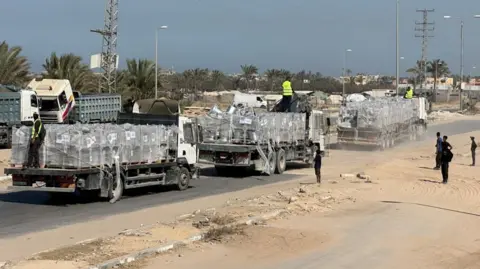 Reuters
ReutersHe also said supplies used to restore Gaza’s health system have been seized at the border because Israeli officials say they could be used militarily.
“If you’re going to build a field hospital, you need canvas and poles (for tents),” he added. “So if the poles are removed, because they can be dual-purpose, you can’t have a tent.”
Thousands of Palestinians are waiting for weekly medical evacuation flights, Dr Tedros said, although none have flown for two weeks due to religious holidays in Israel. He said 700 people have already died while waiting for medical evacuation and demanded an increase in the number of flights.
Israel launched a military campaign in Gaza in response to the October 7, 2023 attack, in which Hamas-led gunmen killed around 1,200 people and took 251 others hostage.
At least 68,229 have been killed in the Israeli offensive in Gaza since then, according to the territory’s Hamas-run health ministry.
In July, a United Nations-backed organization It was concluded that there was a famine in GazaAlthough Israel disputed the findings, saying there was “no starvation”.
The UN has previously estimated that rebuilding Gaza would cost $70bn (£52bn). Dr Tedros said about 10% of this figure would need to be spent on his damaged health system.
He added: “We have been saying for a long time that silence is the best medicine.
“The ceasefire we have is very fragile and even after the ceasefire some people have died because it has been broken twice.
“The saddest thing is that many people were cheering in the streets because they were so happy that there was a peace agreement. Imagine, (some of) the same people who died after being told that the war is over.”
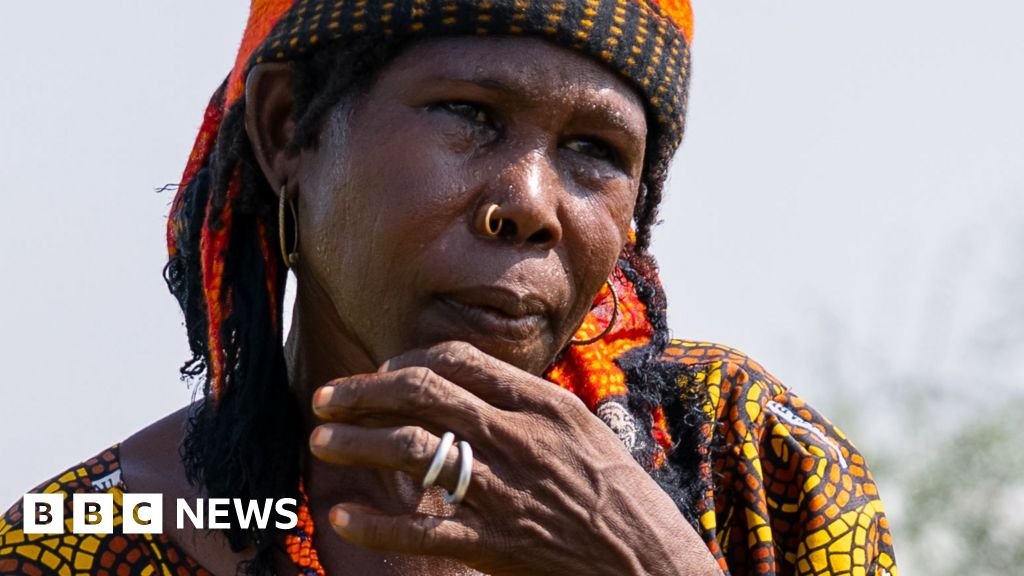
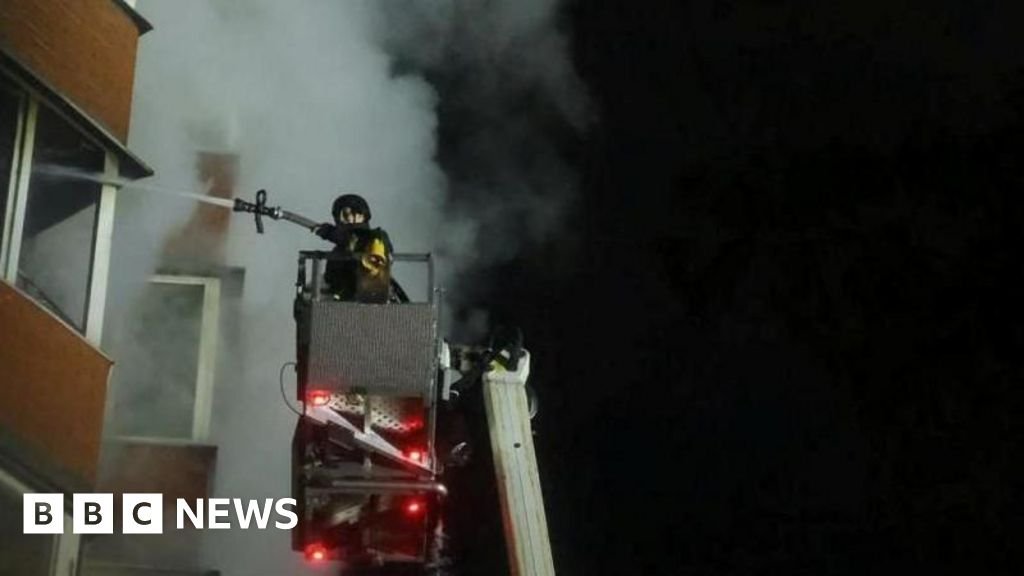










Post Comment